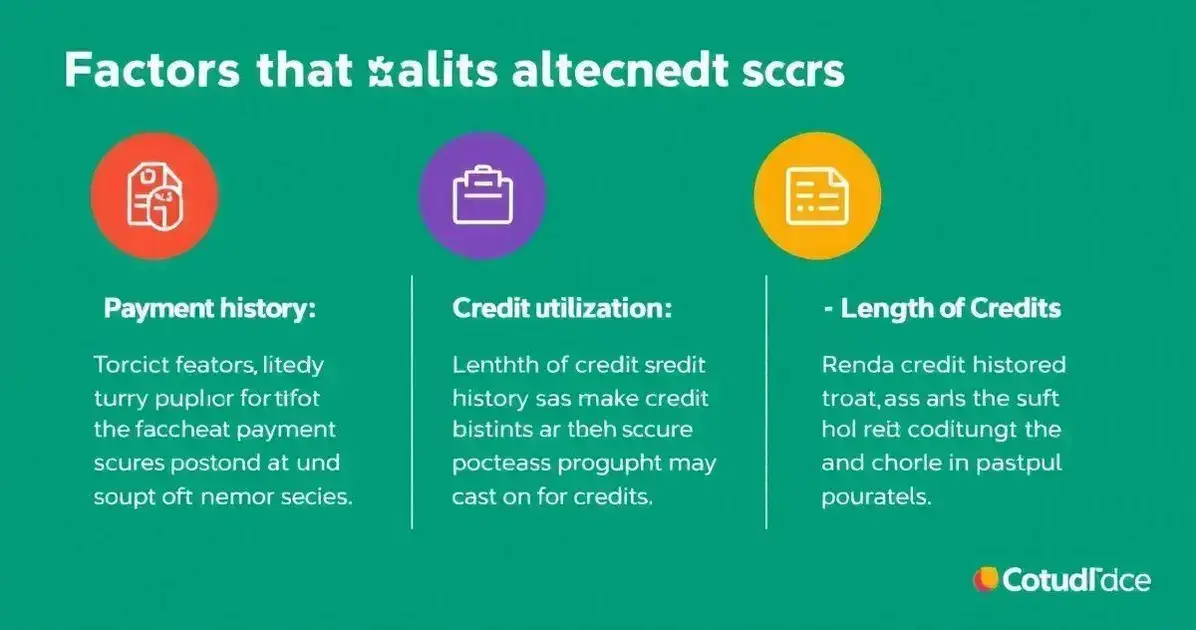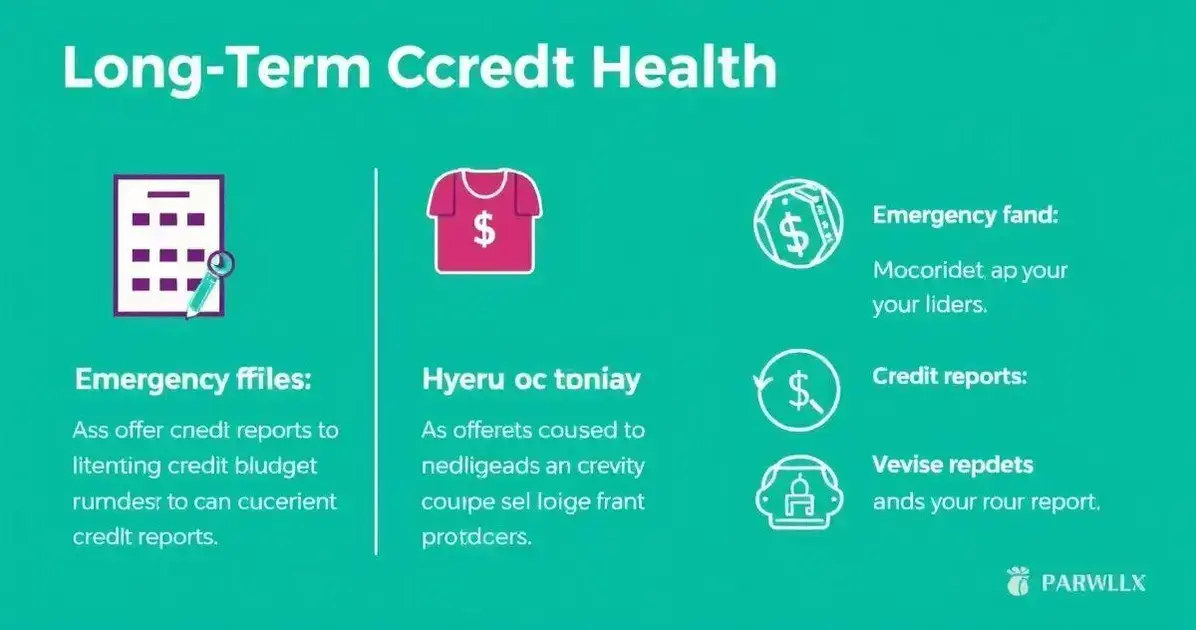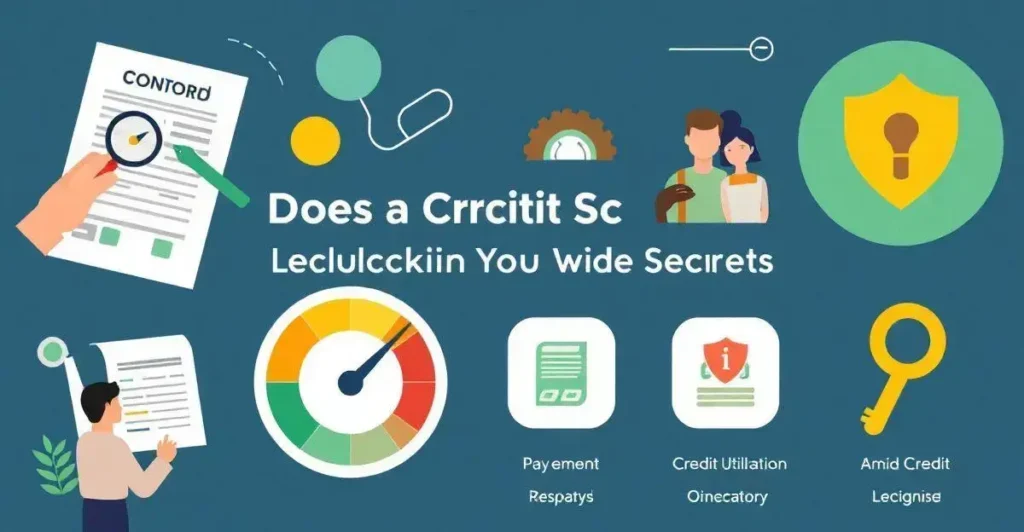Are you wondering how to improve your credit score in 30 days? Boosting your credit score quickly is possible with the right strategies.
Understanding the factors that affect your credit score is crucial, and implementing actionable tips can lead to significant changes in just a month.
In this article, we will explore essential methods and smart habits that can enhance your credit score, ensuring you are on the right path to financial health.
Understanding Credit Scores
Understanding credit scores is essential for anyone looking to improve their financial health. A credit score is a numerical representation of your creditworthiness, reflecting how likely you are to repay borrowed money. This score typically ranges from 300 to 850, with higher scores indicating better credit.
How Credit Scores are Calculated
Your credit score is determined by several key factors, including:
- Payment History: This is the most significant factor. Timely payments on loans and credit cards can greatly improve your score.
- Credit Utilization: This measures how much credit you use compared to your total available credit. A lower utilization ratio is preferable.
- Length of Credit History: A longer credit history can indicate experience with credit management. Keep older accounts open to benefit your score.
- Types of Credit: A mix of credit types (credit cards, mortgages, loans) can positively influence your score.
- New Credit Inquiries: Frequent applications for new credit can hint at financial instability and may lower your score temporarily.
The Importance of Credit Scores
Your credit score plays an important role in many aspects of your financial life. It affects your ability to secure loans, the interest rates you’re offered, and even your chances of getting hired for certain jobs. Higher credit scores can lead to better financing options and lower costs when making a significant purchase, such as a home or a car.
How to Check Your Credit Score
It’s crucial to know your current credit score. You can obtain your credit report for free once a year from each of the three major credit bureaus: Equifax, Experian, and TransUnion. Monitoring your credit score regularly helps you identify changes and take corrective actions to improve or maintain it.
Factors Affecting Your Credit Score

Several factors affect your credit score, and understanding them is crucial for improvement. Here are the primary components that influence your credit score:
1. Payment History
Payment history makes up about 35% of your credit score. This factor tracks whether you pay your bills on time. Late payments, collections, and bankruptcies can significantly hurt your score. Consistently paying bills on time can lead to a positive impact.
2. Credit Utilization Ratio
Your credit utilization ratio is the amount of credit you’re using compared to your total available credit. Ideally, it should remain under 30%. High utilization can signal to lenders that you may be overextending yourself, which could lower your score.
3. Length of Credit History
The age of your credit accounts contributes to about 15% of your score calculation. A longer credit history may show that you manage credit responsibly. Keeping older accounts active can help enhance this factor.
4. Types of Credit
Diversity in your credit accounts matters. A mix of credit cards, installment loans, and retail accounts can positively influence your score. This factor represents about 10% of your credit score, as it shows lenders that you can handle different types of credit responsibly.
5. New Credit Inquiries
Whenever you apply for new credit, a hard inquiry is made, affecting your score temporarily. This accounts for about 10% of your credit score. Too many inquiries within a short time can suggest financial distress and reduce your score.
6. Public Records and Collections
Negative public records, such as tax liens, foreclosures, or accounts in collections can seriously harm your credit score. These factors remain on your credit report for several years and can detract from your creditworthiness.
By understanding these factors, you can take steps to improve your credit score and achieve better financial health within 30 days.
Quick Tips to Boost Your Credit Score
Improving your credit score in a short time is achievable with some straightforward actions. Here are some quick tips to boost your credit score:
1. Pay Your Bills on Time
Consistency is key. Make sure to pay all your bills, including credit cards, loans, and utilities, on or before the due date. Setting up reminders or automatic payments can help.
2. Reduce Your Credit Utilization
Try to keep your credit utilization below 30%. If you find this difficult, consider paying down existing balances or asking for a credit limit increase on your cards, which can lower your utilization ratio.
3. Become an Authorized User
If you have a family member or friend with good credit, ask if they would add you as an authorized user on their credit card. This can help improve your credit score by benefiting from their positive payment history.
4. Check Your Credit Report for Errors
Regularly review your credit report for errors or inaccuracies. Dispute any inaccuracies with the credit bureaus to ensure your score reflects your true creditworthiness.
5. Limit New Credit Inquiries
Minimize applying for new credit cards or loans during this 30-day period. Each application results in a hard inquiry, which can temporarily decrease your score.
6. Use Credit Responsibly
Use your credit cards for regular expenses but pay off the balance each month. This shows lenders that you can manage debt responsibly and will positively impact your score.
By implementing these tips, you can see a noticeable boost in your credit score quickly.
Monitoring Your Credit Report

Monitoring your credit report is a key step in improving your credit score. Keeping track of your credit report allows you to identify issues, detect fraud, and understand how your financial habits affect your score.
1. Obtain Your Free Credit Reports
You are entitled to one free credit report each year from each of the three major credit bureaus: Equifax, Experian, and TransUnion. Visit AnnualCreditReport.com to request your reports.
2. Review Your Credit Report Regularly
Make it a habit to review your credit report at least once a year. Look for any inaccuracies or errors, such as incorrect account information, late payments that were paid on time, or accounts you don’t recognize.
3. Check for Signs of Identity Theft
Regular monitoring can help you spot signs of identity theft. Look for unfamiliar accounts or inquiries. If you see anything suspicious, report it immediately to the credit bureau.
4. Understand Your Credit Score Factors
Your credit report contains information that directly affects your score. Be aware of factors like your payment history, credit utilization, length of credit history, and types of credit used. Understanding these factors can help you improve your score strategically.
5. Dispute Errors Promptly
If you find errors in your credit report, act quickly to dispute them. Each credit bureau has a process for disputing inaccuracies. Provide sufficient evidence to support your claim, and they are required to investigate.
6. Use Monitoring Services Wisely
Consider using credit monitoring services that provide alerts for significant changes to your credit report. These services can help you stay on top of your credit and can be useful for ongoing credit health management.
Mistakes to Avoid When Improving Credit
When working to improve your credit score, it’s important to avoid common mistakes that can hinder your progress. Here are some mistakes to avoid when improving credit:
1. Missing Payments
Your payment history is critical to your credit score. Missing payments can severely damage your score. Set up reminders or automatic payments to ensure all bills are paid on time.
2. Using Too Much Credit
High credit utilization can negatively affect your score. Try to keep your utilization below 30%. Avoid maxing out credit cards, and consider spreading expenses across multiple cards.
3. Closing Old Accounts
Closing old credit accounts can decrease your credit score by shortening your credit history. Keep older accounts open to maintain a longer credit history, which is beneficial for your score.
4. Applying for Too Much New Credit
Each time you apply for credit, a hard inquiry is made, which can lower your score. Limit the number of new credit applications, as too many inquiries can signal risk to lenders.
5. Ignoring Your Credit Report
Not reviewing your credit report regularly can lead to missed errors or inconsistencies. This oversight can cost you points and hinder your improvement efforts. Make it a habit to check your credit report at least annually.
6. Making Minimum Payments
Only making minimum payments on credit cards can keep you in debt longer and lead to high interest charges. Pay more than the minimum whenever possible to reduce debt and show responsible credit use.
7. Believing All Credit Scoring Models Are the Same
Different lenders may use different credit scoring models. Understand that your score can vary across different models, and don’t assume it will be the same everywhere. Work on improving your overall credit profile.
Avoiding these common mistakes can accelerate your journey towards a better credit score.
Long-term Strategies for Credit Health

For lasting credit health, it’s important to adopt long-term strategies that promote responsible credit management. Here are some effective tactics to consider:
1. Build an Emergency Fund
Having an emergency fund can help you avoid late payments during unforeseen circumstances. Aim to save at least three to six months’ worth of expenses to provide financial security.
2. Establish a Budget
Create a monthly budget to track your income and expenses. This will help you manage your spending and ensure you can make timely payments on your debts. Adjust your budget as needed to prioritize credit obligations.
3. Use Credit Wisely
Only borrow what you can afford to repay. Use credit cards for regular expenses, but aim to pay the balance in full each month. This shows lenders that you can manage credit responsibly.
4. Diversify Your Credit Mix
Having a good mix of credit types, such as credit cards, installment loans, and mortgages, can benefit your credit score. However, only take on credit that you genuinely need and can manage effectively.
5. Keep Your Credit Accounts Active
To maintain a positive credit history, keep your old accounts open and in good standing. Even if you don’t use them frequently, having a longer credit history strengthens your overall credit profile.
6. Review Your Credit Report Annually
Regularly reviewing your credit report helps you understand your credit status and track improvements. Check for errors and dispute any inaccuracies promptly to maintain an accurate credit history.
7. Stay Informed
Keep yourself updated on credit scoring models and changes in credit reporting regulations. Staying informed will help you make better decisions regarding your credit health.
By following these long-term strategies, you’ll foster a healthier credit profile and achieve your financial goals.
How to Improve Credit Score in 30 Days: Final Considerations
You have the tools and strategies to improve your credit score and achieve financial success. By understanding credit scores, monitoring your report, and avoiding common mistakes, you’re on the right path.
Implementing quick tips and long-term strategies will help boost your credit score within 30 days and maintain good credit health in the future. With consistent effort and informed decisions, your credit score will reflect your responsible financial habits.
Remember, managing your credit is a journey, and every step you take brings you closer to your financial goals.

